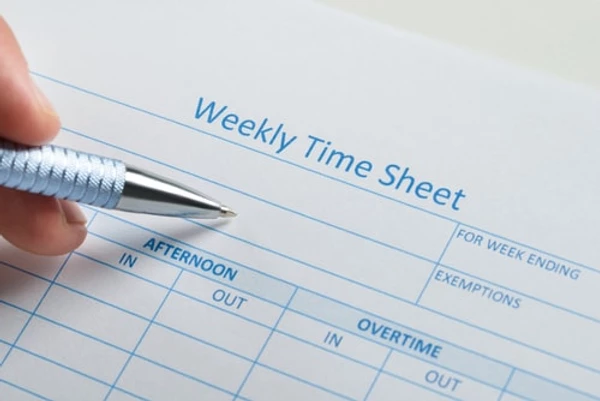
What is “reporting time pay?”
Under California law, employers must pay “reporting time pay” to nonexempt employees in certain circumstances. Specifically, if a nonexempt employee is required to report to work (and he/she reports to work), but the nonexempt employee (a) is not put to work; or (b) is put to work for less than half of the amount of time that he/she was supposed to work that day, then the employer must pay the nonexempt employee for one half of the amount of time that the employee was supposed to work that day at his/her regular rate of pay, but in no event for less than two hours or for more than four hours. However, if the nonexempt employee works at least half of the amount of time that he/she was supposed to work that day, the employer is not required to pay the employee any reporting time pay.
Here are some examples showing how reporting time pay works:
Example No. 1: Mike is scheduled to work for eight hours on Tuesday and Mike reports to work, but Mike’s employer wants him to work for only one hour instead. Mike’s employer must pay Mike for the one hour that Mike worked as well as three hours of reporting time pay for a total of four hours of pay.
Example No. 2: Maria is scheduled to work for three hours on Wednesday and Maria reports to work, but Maria’s employer wants her to work only one hour instead. Maria’s employer must pay her for the one hour that Maria worked as well as one hour of reporting time pay for a total of two hours of pay.
I’m a nonexempt employee, and I reported to work on Thursday and worked all of my scheduled hours. Later that same day, my employer called me into work again, and I was required to work one hour. Does my employer owe me any reporting time pay?
Yes. Your employer must pay you one hour of reporting time pay at your regular rate of pay. Under California law, if a nonexempt employee is required to report to work a second time in any one workday and is furnished less than two hours of work on the second reporting, he/she must be paid for two hours at his/her regular rate of pay. Thus, in your situation, your employer must pay you for the one hour that you worked as well as one hour of reporting time pay for a total of two hours of pay.
I am a nonexempt employee, and I reported to work on Thursday for a six-hour shift. I worked for two hours but then went home because of a personal emergency at home. Does my employer owe me any reporting time pay?
No. You were the one who decided to leave work early; your employer did not deprive you of any scheduled hours.
Does reporting time pay count towards overtime compensation?
No. Reporting time pay is not compensation for services rendered; it is a penalty that your employer must pay to you. As such, reporting time pay is not counted towards overtime.
Are there circumstances where my employer is not required to pay for reporting time?
Yes. Your employer is not required to pay you reporting time pay in any one of the following circumstances: (a) your employer’s operations cannot begin or continue because of threats to employees or property (e.g., a bomb threat); (b) civil authorities recommend that work not begin or continue; (c) public utilities fail to supply electricity, water, or gas; (d) there is a failure in the public utilities or the sewer system; (e) there is an interruption of work caused by an Act of God or other cause not within your employer’s control (e.g., an earthquake); (f) you are on paid standby status; or (g) you have a regularly scheduled shift of less than two hours (e.g., you are a relief security guard who works for only one hour in the middle of the day).
If you have questions about reporting time pay under California law, call 916-612-0326 or email ([email protected]) Finley Employment Law today. We serve clients throughout California, including Sacramento, Folsom, Roseville, Granite Bay, and Elk Grove.
The information in this blog post is for general informational and advertising purposes only and is not, nor is it intended to be, legal advice. Instead, you should speak with a California employment attorney for advice regarding your individual situation.

